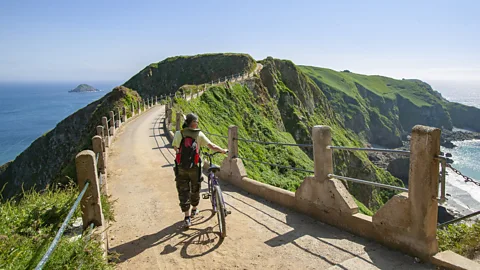Sarkese: Britain's archaic Norman language
Hugh Tucker
Features correspondent
 Uwe Moser/Getty Images
Uwe Moser/Getty ImagesThere are only three native speakers of Sarkese alive – but a Czech linguist is working to document, codify and revive the island's complex language to hopefully ensure its survival.
When you're travelling, learning a few phrases in the local language is a good idea. But as I attempted to wrap my tongue around "window._taboola = window._taboola || []; _taboola.push({ mode: 'alternating-thumbnails-a', container: 'taboola-below-article', placement: 'Below Article', target_type: 'mix' });
